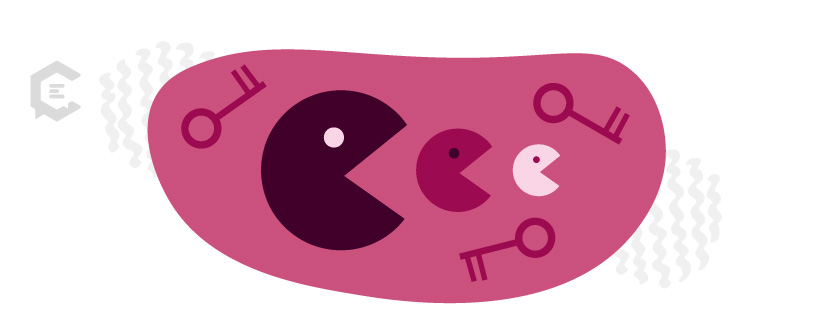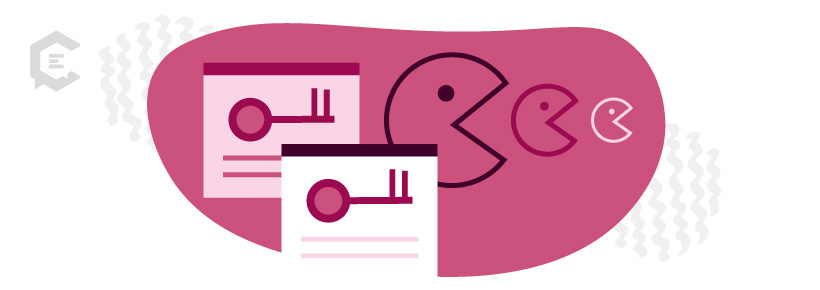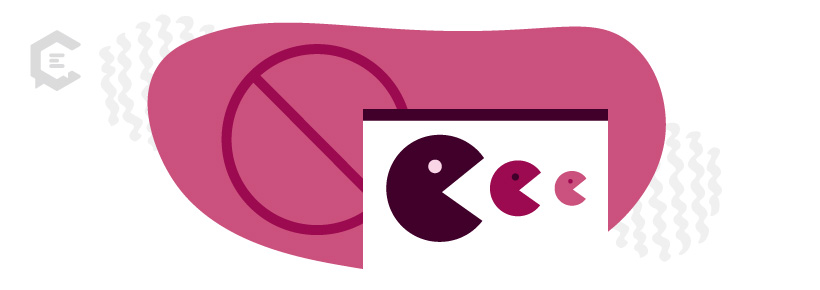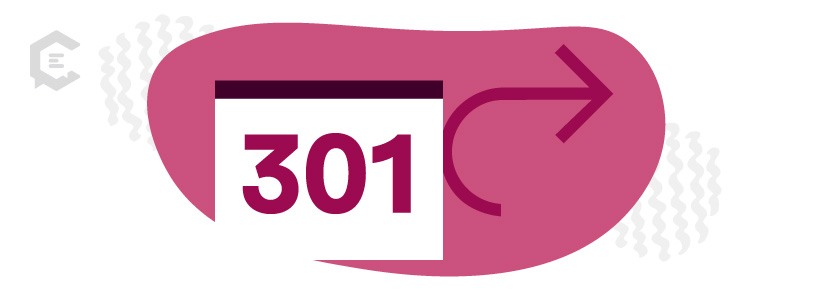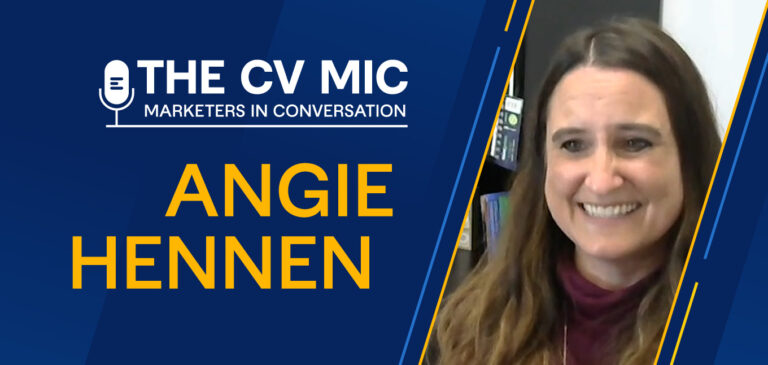Who knew that content cannibalization was a hotly-debated issue? As it turns out, it is. Some SEO experts claim it doesn’t exist, while others warn that it’s a real issue that can tank your rankings.
The answer, like a lot of life’s controversies, lies somewhere in the middle.
Let’s look at content cannibalization and how to fix it.
What is content cannibalization?
Content cannibalization is when you have more than one page targeting the same or similar keywords. Also known as keyword cannibalization, this causes the pages to compete with each other for ranking and hurts your site’s overall organic performance.
Let’s say you have two articles targeting “nurse burnout.” Google can’t tell which one should rank higher for that and related queries. As a result, it may drop its rankings for both pages. Your content is competing with itself and hurting your reputation with the search engine.
This problem can be exacerbated by the fact that brands in niche markets tend to create content on the same few topics over and over again. This confuses Google on which piece should rank higher.
When is content cannibalization a problem?
Well, always. But this is where many SEO pros split camps.
Just because you have two pages ranking for the same keyword, doesn’t mean you have a cannibalization case on your hands. Many SEOs point out that pages can rank for multiple keywords with no problems. Google recognizes there will be some crossover here, especially if the pages target different search intent.
Back to our example.
One article may answer “what is nurse burnout” while the other targets “how to prevent nurse burnout.” Both have “nurse burnout” among their ranking keywords, but there are other, noncompeting keywords they rank for, too.
Google looks at that and the differing search intent, and they’re satisfied. They recognize that this is not a case of cannibalization.
How do you know if you have a keyword cannibalization problem?
Every SEO expert agrees on this point.
It becomes a problem when it hurts your site’s organic performance. And the way to find out if it’s hurting performance is to do a content audit.
We also recommend doing some good old-fashioned incognito Google searches, too. This allows you to see which content is ranking where.
You know which pages matter most—are they in the highest spot?
Is a pillar or core page competing with a less-important page (say, an old blog post) for the same query? Does each page answer the same intent?
That’s gonna be a problem.
Let’s say you have two articles on your site. One title is “how to prevent nurse burnout” and the other is “5 tips to prevent nurse burnout.” They’re both ranking relatively close to each other. This is a content cannibalization problem with similar content, both ranking for “prevent nurse burnout,” and both answering the same query.
Google is not a fan of this scenario.
Keep in mind that content cannibalization and duplicate content are related issues. Learn what Google looks for regarding duplicate content.
How do you prevent content cannibalization?
There are three main ways to fix and prevent future instances of content cannibalization. Often, a blend of two or three of these is the best fix.
1. Canonicalize your content
Canonical tags tell search engines which URLs you want them to index.
It designates the “master” or main page for the keyword—the one you want to appear in search results. Use a canonical tag (rel=”canonical”) to prevent duplicate or closely related content from appearing on multiple URLs.
How to do it: Once your content audit is complete, look at the list of your site’s URLs and their main keywords. Pay attention to any duplicates, especially across pillar pages.
Decide which is the most authoritative page—the one you want to rank for the term—and canonicalize it. Doing so tells Google that this is the page you want to show up in search. Google’s Search Central blog has detailed instructions on where and how to add canonical tags.
Alternatively, you could create a landing page.
Create one optimized, long-form page that you want Google to show in search results. This is the priority or authoritative page. Canonicalize it and then link to all the supporting or competing content.
2. Combine your content
Take your competing pages and combine them into one pillar page.
Using our example, you could combine “how to prevent nurse burnout” and “5 tips to prevent nurse burnout” into one stellar long-form post. “The complete guide on how to prevent nurse burnout.”
To decide which URL remains and which gets killed, look at how each page is performing (traffic, time on page, bounce rate, etc.).
One will likely be the clear winner; keep that one. If they’re close, go with the one that receives the most traffic. Make sure to optimize the “new” page for UX.
3. Pivot your content
Maybe you just need to find new keywords.
Back to your content audit.
Look at the page URLs, keywords, and rank. You should be able to find any pages that are ranking for the same keywords.
Try options 1 and 2 above first. However, if canonicalizing and/or combining your content isn’t a good fix, look for natural opportunities to update pages with new keywords. Once you find the best fit, optimize the piece accordingly.
Caveat: If you go this route, make sure to maintain relevancy.
If you optimize for a new keyword as a means to fix content cannibalization, double-check that the new one accurately describes the page’s content. Will a user who searched for the term feel satisfied by your content?
If not, do not proceed. Return to options 1 and 2.
Can I use a 301 redirect to fix content cannibalization?
You can, but do so with caution.
No one is sure if having too many 301 redirects hurts your SEO. Plus, if you 301 redirect page X to page Z, users arrive at page Z automatically and will never see page X again.
If you canonicalize page Z, then Google knows that Z is the authority page, but users can still visit either page.
Can ClearVoice help us identify cannibalized content?
Yes, we sure can. As part of our managed content solutions, we can create a content roadmap for you. It’s composed of data-driven insights and competitive research to help our clients improve their performance in search—including identifying any content cannibalization issues.
Ready for help with SEO best practices? Reach out to us today to maximize your visibility online.
